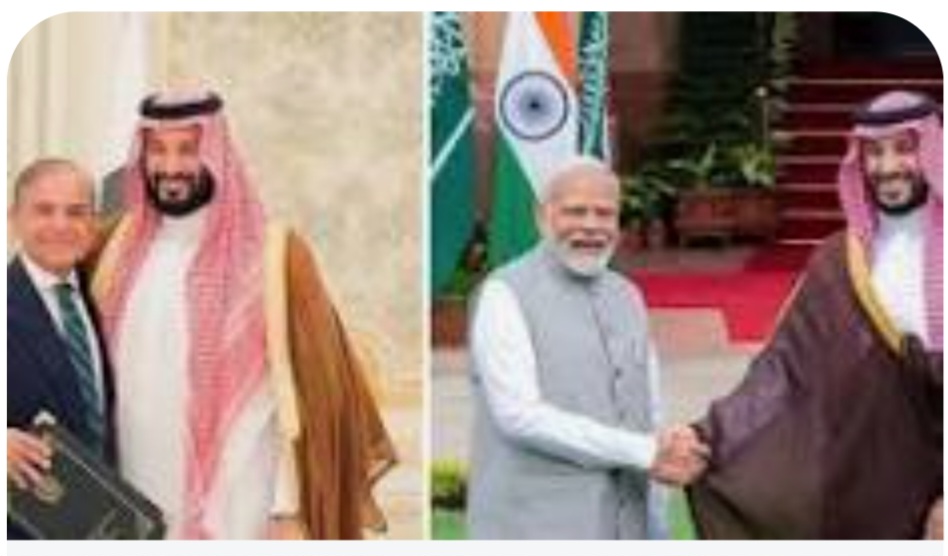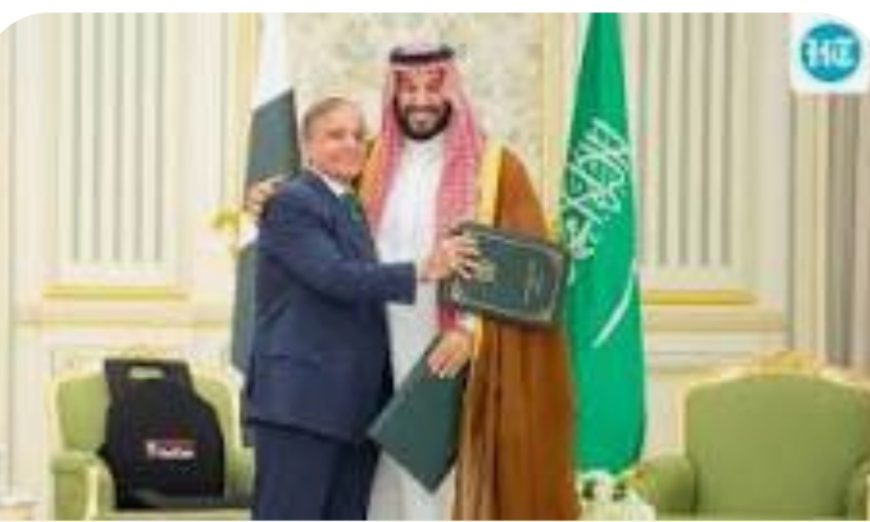
Under the new security pact signed in Riyadh, Saudi Arabia will get involved in the event of Delhi attacking Islamabad, Pakistan Defence Minister Khawaja Asif said in an interview on Friday.
“Yes absolutely. There’s no doubt about it,” Asif told Pakistani news channel, Geo TV, while saying that it is not about any country in particular as it is a collective defence deal and not to be used for aggression.
“If there is aggression, whether against Saudi Arabia or Pakistan, we will jointly defend against it,” he said.
The pact draws comparisons to Article 5 of the Nato treaty, which centres on collective defence. Under the agreement, Pakistan’s military capabilities, including its nuclear assets, are available for Saudi Arabia’s use in case of an emergency.
“Our capabilities will absolutely be available under this pact,” Asif told international news agency Reuter, though Pakistan maintains that its nuclear doctrine is India-specific. “This is a comprehensive defensive agreement that encompasses all military means,” confirmed senior Saudi official.
A key clause of the pact states that “any aggression against either country shall be considered an aggression against both.”
In response, India said that the agreement “formalises a long-standing arrangement between the two countries” and is currently being examined for its wider implications.
However, geopolitical analyst Ian Bremmer said that in case of another face-off with the Pakistani Army, India will now have to factor in Saudi Arabia as well.
“If you’re India and you have an ongoing very severe border security issue with Pakistan… there’s a good chance we’re going to see another military altercation. Now if that happens and Saudi Arabia is committed to come to Pakistan’s defence, if I’m India, that has to factor into my calculations. That’s going to change life for India, no question,” Bremmer told India Today TV.
Bremmer further explained that Saudi Arabia has long supported Pakistan’s nuclear programme, and considered it an emergency option for itself in a crisis. “The fact that they are now openly declaring a collective security pact is a very significant new step forward,” he said.
The agreement is seen as part of Saudi Arabia’s efforts to diversify its security partnerships beyond the United States. “It is an effort to diversify alliances, to rely less exclusively for security on the United States. The need to ensure that they have a broader array of security partners around the world is growing,” said Bremmer, adding that it strengthens Pakistan geopolitically.
Asif emphasised that the deal’s “strategic mutual assistance” element commits both Islamic nations to act jointly in case of an attack. “If either Pakistan or Saudi Arabia is attacked from anywhere, it will be considered an attack on both nations, and we will respond together,” he said.
The assertion comes against the backdrop of recent tensions between the two nuclear-armed neighbours after India launched its counterterror action under Operation Sindoor in May, following the Pakistan-sponsored Pahalgam terror attack.
The agreement, formally titled the “Strategic Mutual Defence Agreement”, was signed earlier this week in Riyadh. It pledges joint defence in case either country is attacked and consolidates decades-old security ties between Pakistan and Saudi Arabia. Deputy PM Ishaq Dar has said other countries are also interested in similar strategic defence arrangements with Islamabad after the Saudi pact.
Meanwhile, India issued a response on Thursday, stating it would closely study the pact’s implications for national security.
MEA spokesperson Randhir Jaiswal said: “We have seen reports of the signing of a strategic mutual defence pact between Saudi Arabia and Pakistan. The Government was aware that this development, which formalizes a long-standing arrangement between the two countries, had been under consideration. We will study the implications of this development for our national security as well as for regional and global stability. The Government remains committed to protecting India’s national interests and ensuring comprehensive national security in all domains.”
“Yes, absolutely. There is no doubt about it,” Asif told Pakistan’s Geo TV, likening the agreement to NATO’s Article 5, which treats an attack on one member as an attack on all. He emphasised that the understanding with Saudi Arabia is meant to ensure collective security, not provoke confrontation.
“If there is aggression, whether against Saudi Arabia or Pakistan, we will jointly defend against it,” he said, underscoring that the deal is purely defensive in nature.
Asif added in a separate conversation with Reuters that the two countries have “no intention of using this pact for any aggression,” but if either nation is threatened, “this arrangement will become operative.”
The minister confirmed that Pakistan’s nuclear arsenal could, in principle, be used to protect Saudi Arabia under the agreement, despite Islamabad’s official stance that its warheads are reserved for use only against India.
“Our capabilities will absolutely be available under this pact,” Asif said, noting that Pakistan has consistently allowed international inspections of its nuclear sites and has maintained a record free of violations.
A senior Saudi official, when asked by Reuters whether the deal obliges Pakistan to extend a nuclear shield, described it as “a comprehensive defensive agreement that encompasses all military means.”
The mutual defence pact was formalised during Prime Minister Shehbaz Sharif’s visit to Riyadh earlier this week. As previously reported, a key provision of the agreement states that “any aggression against either country shall be considered an aggression against both.” Reacting to the announcement, India’s government said the pact “formalises a long-standing arrangement between the two countries,” adding that its implications are under review.
India’s Response To the Defence Pact
On the Saudi Arabia-Pakistan Agreement, MEA spokesperson Randhir Jaiswal says, “India and Saudi Arabia have a wide-ranging strategic partnership which has deepened considerably in the last several years. We expect that this strategic partnership will keep in mind mutual interests and sensitivities.”
Analysts told Reuters that the deal pairs Saudi Arabia’s financial strength with Pakistan’s nuclear capabilities, a combination that offers strategic gains to both. For Islamabad, it brings crucial economic backing and the prospect of closer alignment with Arab nations. For Riyadh, it provides what many see as a potential “nuclear shield.”
The move is expected to draw close attention from Israel, currently the only Middle Eastern nation believed to possess nuclear weapons, as well as from Iran, a key regional rival to Saudi Arabia.
When asked whether the pact could expand into a broader Arab security alliance, Asif was cautious but did not rule it out. “The doors are not closed,” he said. “I cannot prematurely answer this… but I think it is a fundamental right of the countries and people here, particularly the Muslim population, to defend their region together.”

